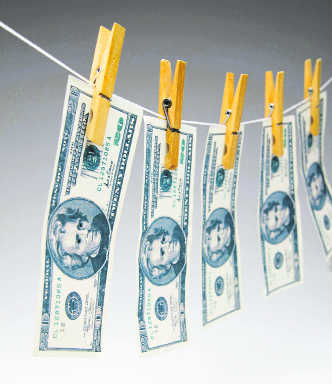Most of us are familiar with the French toast. It’s a savoury dish made by dipping slices of bread in a mixture of beaten eggs, often with milk or cream, in addition to sugar, cinnamon, nutmeg, and vanilla. The slices are then fried on both sides until they turn brown and are cooked through. They are then garnished with sugar or sweet toppings such as jam, honey, fruit, or maple syrup.
But how does one make a double Irish with a Dutch sandwich? Well, the recipe for this ‘sandwich’ is not so simple. It’s ingredients are a complicated and heady mixture of tax havens, offshore companies, shell corporations and may also have a sprinkling of crooks, money launderers, banksters and other white collar criminals. As the Panama Papers leaked last week show.
Some large companies employ the double Irish with a Dutch sandwich technique to avoid paying corporate taxes by using Irish and Dutch subsidiary companies to shift profits to low- or no-tax regimes. The technique involves sending profits first through one Irish company, then to a Dutch company and finally to a second Irish company headquartered in a tax haven. For example, Google moved $12 billion through the Netherlands to Bermuda in 2014, as part of a structure which allowed it to earn most of its foreign income tax free.
While tax avoidance is not illegal, tax evasion is. Most of us taxpayers seek to minimise our taxable income by making certain investments, such as taking insurance policies or making contributions to the provident fund that enable us to claim income deductions. On the other hand, tax evasion is the illegal dodging of taxes through misrepresentation or similar means.
Panama Papers expose the tax havens of the rich and powerful, how the global elite launder money, dodge sanctions and evade taxes. A tax haven is a country that lets foreign individuals and businesses work with very little tax liability. They promise to keep their clients’ financial information secret. The Bahamas, Bermuda, the Cayman Islands, the Cook Islands, Hong Kong, the Isle of Man, Mauritius, Monaco, Panama, Switzerland and St Kitts are some tax havens.
The Panama Papers reveal that the secret beneficiaries of billions of dollars include a Saudi king, the President of Argentina, the prime minister of Iceland (the first casualty of the scandal), allies of Russian President Vladimir Putin, British PM David Cameron’s father as also business tycoons and sports stars. The 500 Indians on the list include Amitabh Bachchan and Aishwarya Rai.
These skeletons in the form of 11 million leaked documents spanning since the 1970s have stumbled from the dark cupboard of Mossack Fonseca, a law firm with offices in Panama and 38 other countries, that helps clients hide money. The German newspaper Süddeutsche Zeitung shared the firm’s leaked files, called “The Panama Papers: The Secrets of Dirty Money”, through the International Consortium of Investigative Journalists.
Mossack Fonseca is a firm, “that sells anonymous offshore companies around the world. These shell firms enable their owners to cover up their business dealings, no matter how shady,” according to Süddeutsche Zeitung.
So, what are shell firms? And, what is money laundering?
Shell corporations are often formed before commencing operations to obtain financing. At times, they may be used as a front in tax evasion and in black market activities. Dummy corporations are created specifically for the purposes of illegal activity. These shell firms act as laundromats as the black money passing through them is ‘laundered’ and comes out clean as white money.
Did you notice the absence of Americans in the list? Well, this is just the tip of the Panama Papers’ iceberg. More revelations are in the offing.
Meanwhile, we Indians would do well to associate patriotism with tax compliance rather than just chanting Bharat Mata ki jai. Compare with South Korea: in November 1997, when a foreign aid crisis hit the country, Seoul was forced to take a loan from the IMF for a bailout. Besides other aggressive steps, what helped the country recover from the crisis within two years was some 3.5 million people joining in the campaign to collect gold to help the country repay the IMF funds.
hkhetal@gmail.com









